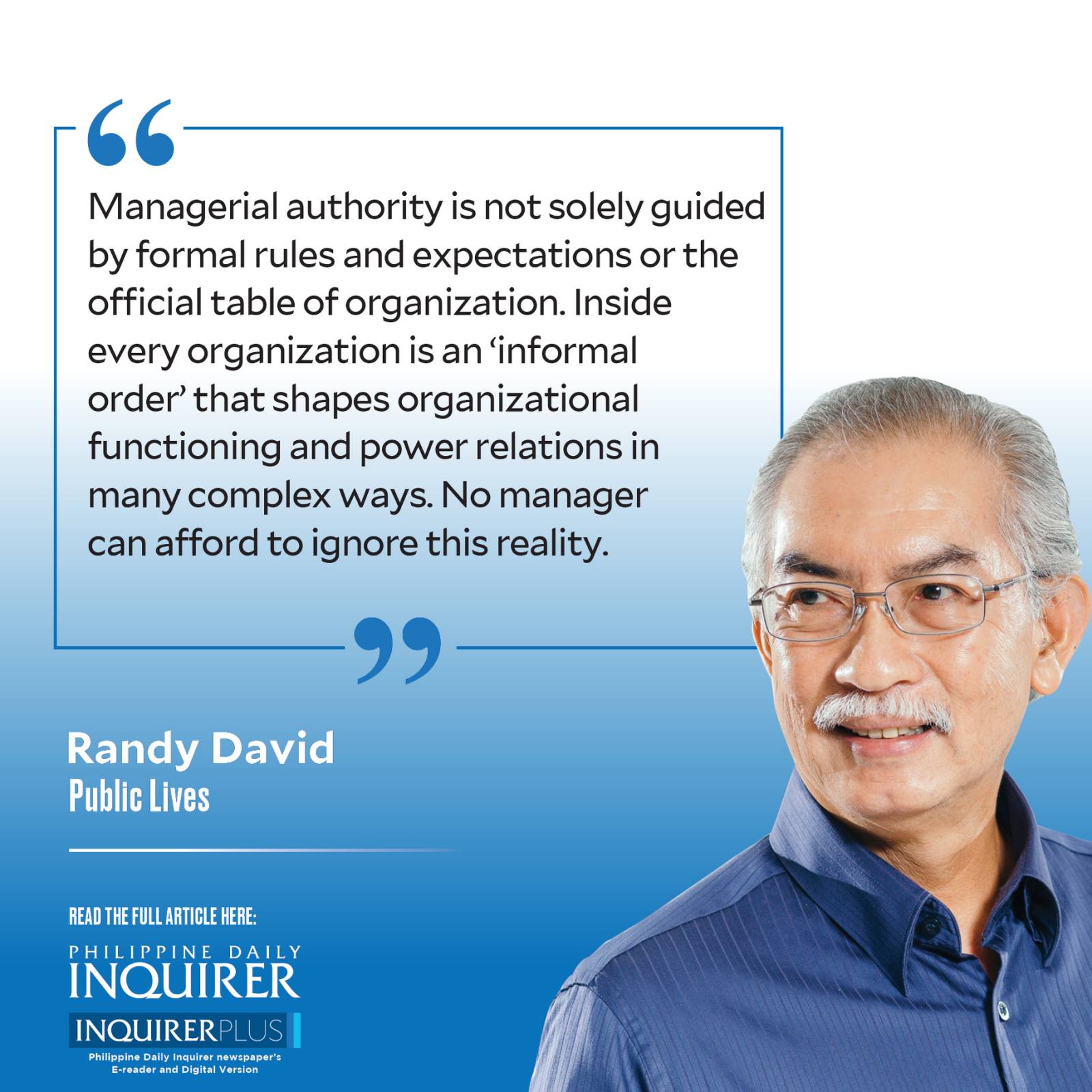Management prerogative and its limits

Only a few public agencies are as visible to the public eye and as exposed to media scrutiny as the Manila International Airport Authority (MIAA), which manages the Ninoy Aquino International Airport terminals. No public facility has been subjected to more constant and carping commentary than our premier airports.
The reason for this is simple: We can’t help but compare our airports with those we go through in other countries. The ordeal we experience at our overcrowded, ill-equipped, and poorly maintained passenger terminals is the first thing we recall when we lament how far we have lagged behind our neighbors.
Thus, when I heard that the new boss at the MIAA, Cesar Chiong, along with his officer in charge (OIC) Assistant General Manager for Finance and Administration Irene Montalbo, had been suspended and later dismissed by the Ombudsman acting on the anonymous complaint filed by some MIAA personnel, it was easy to assume that another well-meaning reformer has again been stopped in his tracks by a recalcitrant bureaucracy. This, indeed, is the narrative that is being promoted by business groups that have come out in support of the embattled former MIAA general manager (GM).
The doctrine often cited in defense of organizational reforms is “management prerogative.” I was delighted to find jurisprudence that is rich in references to this doctrine and its application. Here is a useful definition from a Court resolution (Rural Bank of Cantilan, Inc. v. Julve): “Under the doctrine of management prerogative, every employer has the inherent right to regulate, according to his own discretion and judgment, all aspects of employment, including hiring, work assignments, working methods, the time, place and manner of work, work supervision, transfer of employees, lay-off of workers, and discipline, dismissal, and recall of employees. The only limitations to the exercise of this prerogative are those imposed by labor laws and the principles of equity and substantial justice.”
The same ruling makes explicit reference to personnel transfers: “ … (c) a transfer becomes unlawful where it is motivated by discrimination or bad faith or is effected as a form of punishment or is a demotion without sufficient cause; (d) the employer must be able to show that the transfer is not unreasonable, inconvenient, or prejudicial to the employee … ”
As the above quote clearly shows, there are legal limits to the exercise of management prerogative. The basic rules are: (1) It has to be transparent and justifiable from the perspective of organizational needs and objectives, or the exigencies of the service. (2) It must be guided by reason, fairness, equity, and humane consideration of an affected person’s situation. This is the language of the law. Not being a lawyer, I will not comment on whether the Ombudsman’s decision (which I have read) was correct, fair, unjust, or too harsh.
But, as a sociologist (the underlife of formal organizations was one of my early interests in the field), I will discuss what I consider to be sociological limits to managerial prerogative. I am always intrigued when the manager of an organization finds it necessary to explicitly invoke this concept to justify certain changes in the organization. To me, invoking a formal right or power that is generally assumed to be inherent in a given position is already a sign that something is amiss.
Managerial authority is not solely guided by formal rules and expectations or the official table of organization. Inside every organization is an “informal order” that shapes organizational functioning and power relations in many complex ways. No manager can afford to ignore this reality.
In a fascinating early work written by Niklas Luhmann, titled “The New Boss,” the German sociologist asks what sort of problems confront a newly appointed manager who aspires to be an effective leader, particularly if he’s an outsider. “Is it possible for him to recognize the problems that plainly dominate everyday work? Is it possible for him to be able to find his way through the intrigues, claims, and exchanges that are instrumental in the distribution and allocation of promotions, responsibilities, and access to sources of information … ? Because of his formal status, the manager is inevitably a key figure in this system. The only question is whether he is being used—against his will and knowledge—or whether he has mastered the system.”
Within his first month in office as MIAA GM, Cesar Chiong began reassigning key personnel in the agency, guided mainly by an OIC he has installed at the Office of the Assistant General Manager for Finance and Administration. He had obviously not given himself enough time to earn his subordinates’ trust. The criteria guiding these transfers had not been adequately discussed or explained to the personnel who were bound to be affected. He seems to have approached his position, not with tact, but waving the doctrine of managerial prerogative. A fatal start for a new boss.
Luhmann’s parting thesis is worth pondering: “Power can be executed effectively only in the form of cooperation, and not in the form of conflict.”
—————-
public.lives@gmail.com




















